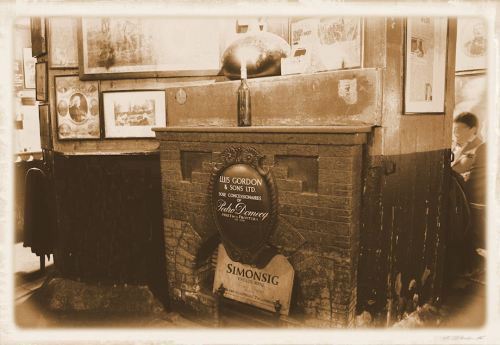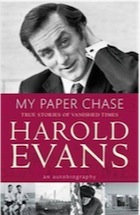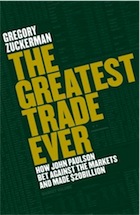An afternoon in 1998
 I held the tenner out to him. He was Reebok Classics, drainpipe pale blue jeans, ellesse sweater and at least a foot taller. A thin gold chain snaked around the back of his neck. I smelt CK One. He pulled out a Zippo and in one flick lit his cigarette.
I held the tenner out to him. He was Reebok Classics, drainpipe pale blue jeans, ellesse sweater and at least a foot taller. A thin gold chain snaked around the back of his neck. I smelt CK One. He pulled out a Zippo and in one flick lit his cigarette.
Three bottles of the cheapest cider. Big bottles. And a packet of Benson & Hedges Gold, I said.
Classy. What do I get?
The change.
What would your mummy think? He held his cigarette between his index finger and thumb, examining the stub. Ok. Wait behind the recycling bins. I’ll be back in ten. He swung into the passenger seat of a Vauxhall Nova 1.6i GSi, White Town playing from the stereo.
Fucking kevs, said Jon, walking towards the bins. Do you even know him?
Seen him hanging around the car park sometimes.
How do you know him?
I don’t. I just asked him if he would do it.
He could just take our money.
What else are we going to do? The teachers have been into the Spar, they know who we are, and we’re in uniform. We won’t get served. I don’t have any ID. There’s nothing else to do.
The recycling bins fanned out in a circle at the edge of the carpark, leaving a hidden patch of concrete in the middle. Cigarette butts filled the cracks and corners, a choice hideout for schoolboys. If you poked your head around Brown-Glass Only you could see the latch-gate leading to the corner of the boarding house.
I looked at my faded lace-ups. Jon wore Kickers, despite, or because, they were against school regulations. He kicked out at the bins, scuffing the base with black rubber. An empty gong went out among the assorted Mondeos and Astras, company cars out on the weekend’s chores.
Subtle. Real subtle.
We’re not doing anything wrong.
Yet.
What was that song they were playing? That song is so old.
Pretty ancient. At least a year.
I heard the latch go and watched two sixth-formers make their way across the half empty car-park. Jon backed up against the side of the bin. Last time we managed to get alcohol, some prefects blackmailed us. Give it up, or explain yourself to the housemaster, they smirked. A letter to your parents, how very disappointed everyone is. Three weeks of detention. Gated all weekend, signing your name every hour into a battered green A4 book, watched by the housemaster, giving your excursions a maxim radius of thirty minutes. There was nowhere to go in town anyway, but sometimes you wanted to stay there. The sixth-formers made their way past the public toilets and round out onto the road towards the station. Jon gave them the finger, well out of sight.
After a while, the Nova made its way around the edge of the car park, weaving in and out of the empty spaces.
Here you go. He handed me the white plastic bag. There were only two two-litre bottles of White Lightening. I fished out the B&H.
Where’s the other bottle?
They only had two.
Why didn’t you get me something else?
Never asked.
Can I have the money then?
You said keep the change. I reasoned he had been waiting for this line for the past five minutes. Someone revved the Nova.
Anytime you gays need anything, let me know, yeah? He smiled. Got a spare fag?
I looked up at him. How much change is there?
About four quid. He jumbled the coins in his pocket, thrusting his hips at me.
Seeing as I fucked your mum last night, let’s call it even, I said.
He stopped jangling the coins. I had that warm feeling that comes with the knowledge that you are going to be telling this story for the next week, miming his traumatized face, puffing out my chest, flicking my wrist at the punch line. I also had that feeling that it was only a small matter of time before he punched me in the face. I turned, pushing Jon between Clear Glass and Cardboard and Paper Only. Running towards the gate, he shouted Run the Cunt Over, and I heard a door slam and the Nova lurch into gear and for a moment it felt like some ridiculous Pamplona and I did not feel so clever. I stumbled, catching my palm on the concrete and as we clattered into the yard, bag flapping against my chest, I heard laughter and the screech of wheels.
Fucking Kevs, said Jon, crouching behind the wall. I picked the gravel out of the palm of my hand and looked at my Casio calculator watch, scraping off the dirt caught among the maze of tiny buttons. The on-duty teacher would be doing the rounds in the afternoon, checking that those off-games were busy being useful, remaining on the straight and narrow path, becoming all-round individuals.
Why did you run away? said Jon.
I don’t know. I wondered if Jon thought I was a coward, or just winding me up. I doubt he would have stayed much longer either. He spat at the wall, as if to make his point.
What do we do now? He asked.
We can’t go into the House with all this. Guess we wait until they leave the car park. I spat as well, the summer dust spinning and falling in the two domes of spit. We looked at the 60-boy boarding house, a red-brick new build, extending out from the back of an 18th century housemaster’s residence like the barrel of the gun, finishing with a square patch of grass large enough for frantic football games. No-one was around. I crept up to a bottom floor study window, taking a handful of primary colour textbooks from the ledge, the covers curling up under my arm.
Let’s go sit on the bench. I want to know where Willoughby is.
Why have you got those?
Props. We sat down facing the House. On the housemaster’s side lay a gravel driveway bisecting a manicured lawn. A bed of Louise XIV roses were in bloom. Ivy clung to the front of the housemaster’s home. This was the side where parents dropped off their children. On the other side, behind the ivy, striped lawns and dormitories, lay a thin elongated concrete yard, penned in with an eight-foot wall, topped with galvanised wire. This is where we milled in breaks, playing variations of basketball and cricket, ending in scuffed knees and tears from the younger boys.
Willoughby was my English teacher, and also the on-duty tutor in the boarding house. With Willoughby, there was no ‘Dead Poets Society’, no self-realization through Shelly and seizing the day. Instead, during his allotted hour, he made us read in turn from Conrad’s Lord Jim, turning seconds into minutes like a macabre alchemist.
On the bench as the two bottles of White Lightening expanded in the summer heat, I scanned the windows of the housemaster’s study hoping to see the Willoughby head, easily identifiable by an almost impenetrable wave of hair circling his cranium. A uniform hirsute plane, without hesitation or deviation, whirling and waving like a primitive helmet. Finally he moved past the study windows, settling at the far end where a desk sat, stacked with homework and hiding a 12-year old Glenlivet. Jon and I made our way back to the car park, ever watchful for hatchbacks and the smell of CK One.
Our drinking hole was a clearing by the river that meandered past an orange-brick supermarket and out the bottom of town, through countryseats and market towns that litter this part of England. Getting there was “a fucking mission,” according to Jon. I saw it as part of the enterprise, stuffing the textbooks around the cider, waiting until finally out of sight so I could tear off the foil of the cigarette packet and fumble for a lighter. Keeping a lighter in your pocket was a risk in itself. Teachers needed little evidence to cast a guilty verdict. Clemency was a capital offence. But leave the lighter in your room, and sooner or later it would be taxed by some opportunistic boy. This is why cargo trousers were so popular.
Eventually, we slipped between the fence and crept along the wall that separated a supermarket loading bay from the Bermuda Triangle of vegetation that you so often find at the base of car parks, too small to catch the eye of an hyper-active urban planner, but big enough to become overgrown sinkhole for empty multi-pack snacks, and made our way along the river.
The clearing itself was well used by schoolboys and a collection of vagrants passing through town onto bigger things. In mid-Summer, boys and bums continually fought an encroaching guerrilla army of nettles, setting up a barricade of empty beer cans and cigarette stubs. The similar needs of the homeless and boarding schoolboys were lost on us as we sat down on the bank, legs dangling over the river, passing the first bottle between us.
The silence, away from B-roads and weekend shoppers, also helped us hear company snaking its way through the nettles. The school had recently introduced a policy of paying teachers a commission per-boy caught flouting the school laws. These proctors prowled the cubby holes and recesses of the town, even in the dead of night. I imagined them standing in the headmaster’s study by candlelight, felt coin pouches plopping into their hands. Confusingly, these sentries of proprietary, eager for the thrill of the chase, were often the chummiest of teachers, slapping backs and ready to please. While we waited for sounds in the undergrowth we finished the cider, hiccupping and burping, tearing pages out of the textbooks and sending paper airplanes floating down the river.
Gordon’s Wine Bar
Gordon’s Wine Bar, situated near Embankment tube station, claims to be the oldest wine bar in London. Although lacking in any official form of proof, it has done its best to look the part.
Set in the vaults of a building that used to be the home of diarist Samuel Pepys (followed by Rudyard Kipling) the walls are covered in old newspapers and candle wax. Not one for the claustrophobic, the vaulted walls cause patrons to stoop and shuffle to their tables riddled with woodworm. It must be El Dorado for health & safety officers.
Amazingly, the bar – more of an underground tavern – has resisted change. There is no music, only wine is for sale, and it has remained in the Gordon family for three generations. Sherries, Madeiras and Ports are served from the barrel. A good selection of cheese also on offer. The history and architecture of the place – low, candlelit and antiquated – lends itself to conversations of drunken grandeur; wine sloshing from the glass as you lean in to impart that vital, misquoted ‘fact’ picked up from a book forgotten two glasses ago. It also shows something personal, for where you take friends, family or lovers for a drink tells its own story about you – and there is nothing more pleasing than to hear your drinking dens being recommended.
But what really makes Gordon’s interesting is the timeline on the website regarding previous owners of the building on top of the vaults(see below). From Lordships to ladies of the night, browsing down the roll-call of names makes a fascinating prelude to a visit to Gordon’s – a warming alternative to the ever-changing churn of high-street bars and brewery chains.
Where: 47 Villiers Street, London, WC2N 6NE
Hours: Open every day: 11am to 11pm, Sunday 12.00am to 10.00pm
Site: http://www.gordonswinebar.com/default.php
SITE TENANTS
York House (to 1674)
by 1237-1536 Bishops of Norwich (Norwich Place).
1536-1556 Charles Brandon, Duke of Suffolk (Suffolk Place).
1556-155S Archbishop of York (York House).
1558-1579 Nicholas Bacon, lord keeper of the Great Seal;
1579-15S7 Francis Bacon born at house, 1561(probably) Sir Thomas Bromley, lord keeper.
c1587-1594 Robert Devereaux, Earl of Essex.
1594-1596 Sir John Puckering, lord keeper.
1596-1617 Sir Thomas Egertan, lord keeper.
1617-1620 Sir Francis Bacon, lord keeper.
1622-1640s Duke of Buckingham (to 1628) and family.
1640s-1660 Thomas, Lord Fairfax, and son-in-law, 2nd Duke of Buckingham.
1660-1674 George Villiers, 2nd Duke of Buckingham.With 14 Buckingham Street
1674 Site leased to Six Thomas Estcourt.
1680-1684 Charles Sackville, 6th Earl of Dorset.
1684-1688 Burnt down and rebuilt.
1688-1701 Samuel Pepys.
1701-1714 Robert Harley (Earl of Essex, 1711).
1714-1716 Arthur Herbert, Earl of Torrington.
1717-1732 George Henry Lee, 2nd Karl of Lichfield;
1732-1788 Edward Harrison, postmaster general. Salt Office.As 19 (now 41-47) Villiers Street
1792-1880 Minier, Minier & Co, seedsmen.
1880-1950 Embankment Chambers. Up to 50 tenants including:
Rudyard Kipling,
Angus Gordon, wine merchant, (1890 – bar now longest serving tenant)
17 to 18 private residents
1923 Brothel prosecution!
1923 Renumbered as 41-47 Villiers Street.
1925 offices introduced
1950 Renamed Kipling House.
All photos from: http://www.gordonswinebar.com/default.php
—-
G.S.T













1 comment